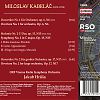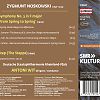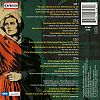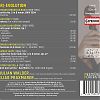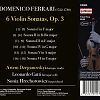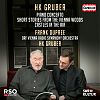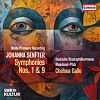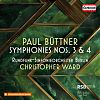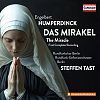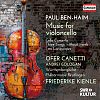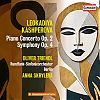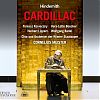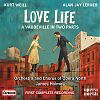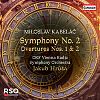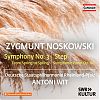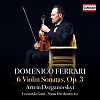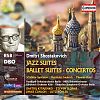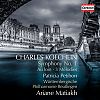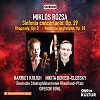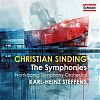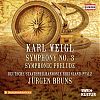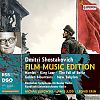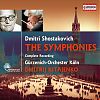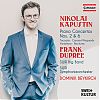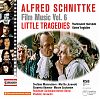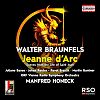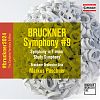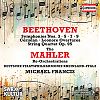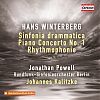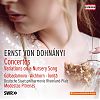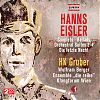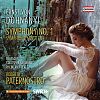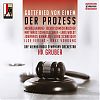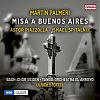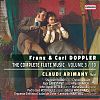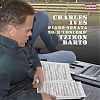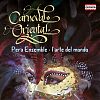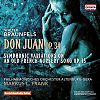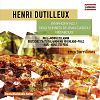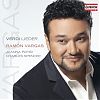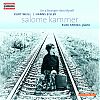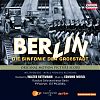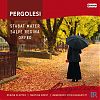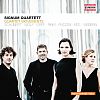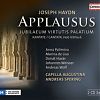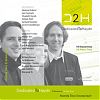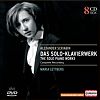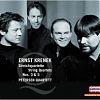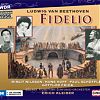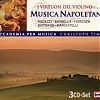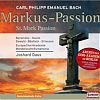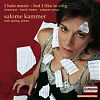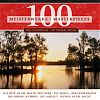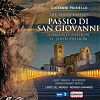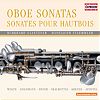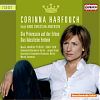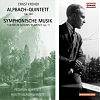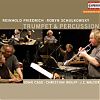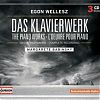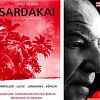cd

MILOSLAV KABELÁČ
ORF Vienna Radio Symphony Orchestra · Jakub Hrůša
Miloslav Kabeláč ranks among the most significant Czech composers of the 20th century. Alongside Antonín Dvořák and Bohuslav Martinů, he is recognized as one of the greatest Czech symphonists, and his work represents a cornerstone of Czech musical heritage. His work encompasses nearly all musical genres except opera, but at its core are eight symphonies, each with a unique orchestration. With the czech conductor Jakub Hrůša the ORF Radio Symphony Orchestra had a welcome expert for this recording, as he examines carefully these rich orchestrated scores of this still underrated music and composer.
Youtube
Weitere Bilder

Z. NOSKOWSKI
DEUTSCHE STAATSPHILHARMONIE RHEINLAND-PFALZ · ANTONI WIT
Although he had famous students (i.e. Szymanowski) and teachers (Moniuszko), few listeners know much, if anything, about Zygmunt Noskowski. And yet, for most of the 19th century, he was the primary exponent of modern symphonic music in Poland. His Third Symphony and his symphonic poem Steppe, Op. 66 blend sweeping Romanticism with Polish folk spirit. The symphony’s seasonal journey is lush and lyrical, starting with spring and ending with the optimistic outlook to the next. Steppe evokes Poland’s vast landscapes with Borodinesque colors. Under Antoni Wit, these overlooked gems shine anew and make for intriguing listening for lovers of melodic symphonic music.
Hörprobe
Weitere Bilder

DMITRI SHOSTAKOVICH - Vocal Symphonic Music
WDR Rundfunkchor · WDR Sinfonieorchester MICHAIL JUROWSKI
Dmitri Shostakovich is known for his symphonies, his chamber music, maybe the popular Suites, and to some extent even his film. Largely unknown, however, is his vocal symphonic music, of which only the cycle on Jewish Folk Poetry, Op. 79, has gained some wider popularity. Here these hidden gems are brought together in authoritative interpretations under Michail Jurowski and the WDR Symphony Orchestra Cologne with its rich Shostakovich tradition under Semyon Bychkov and Rudolf Barshai, among others, from the Six Romances on words by Japanese poets to the Suite on Verses by Michelangelo Buonarroti.
Hörprobe
Weitere Bilder

JULIAN WALDER - (R)-EVOLUTION
JULIAN WALDER, violin · ELIAS PRAXMARER, organ
Hörprobe
Weitere Bilder

DOMENICO FERRARI
Artem Dzeganovskyi · Leonardo Gatti · Sonia Hrechorowicz
The name of Domenico Ferrari (1722-1780) was well known throughout Europe in the second half of the 18th century. He was considered one of the finest violin virtuosos as well as a sublime composer. One of Tartini’s best Italian pupils, Ferrari quickly gained fame first at the imperial court in Vienna and later at the Württemberg court in Stuttgart. After his successful debut at the Concert Spirituel in Paris in 1754, he was granted a ten-year royal privilege to publish his works in France, where he remained until the end of his life, never to return to his native Piacenza. During his stay in Paris, Ferrari published six sets of sonatas for violin with continuo. His Op. 3, featured on this CD, dates back to 1760 and consists of six sonatas. These works showcase a blend of late Baroque and Classical characteristics.


